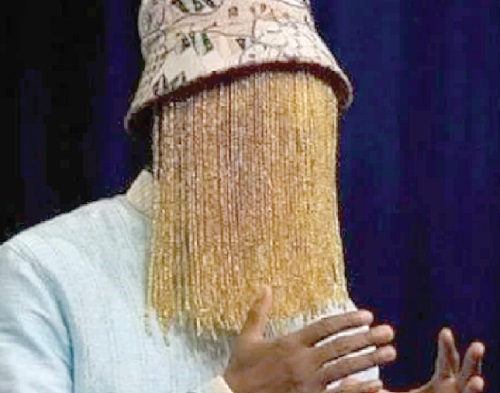The Court of Appeal has set aside the High Court’s decision to allow Investigative Journalist Anas Aremeyaw Anas to testify in open court without his mask.
In a ruling yesterday, a three-member panel of the second highest court presided over by Justice Anthony Oppong was of the opinion that Nyantakyi’s right to fair trial supersedes the witness protection principles invoked by the state.
The court added that Nyantakyi’s right to a fair trial could only be assured by allowing the witness (Anas) to unmask and allowing the judge and lawyers to examine Anas’ demeanour.
Trial
Mr Nyantakyi and a former member of the executive committee of the GFA, Abdulai Alhassan, have been charged with three counts of conspiracy to commit fraud and corruption.
The trial is a result of alleged shady deals exposed by Anas in his ‘Number 12’ investigative piece that exposed alleged corrupt dealings at the GFA.
In May 2023, the High Court granted Mr Nyantakyi’s request to see the face of Investigative Journalist Anas Aremeyaw Anas without him wearing his bead disguise.
This, according to the court, presided over by Justice Marie Louise Simmons, will only be done in the judge’s chambers before Anas enters the witness box to testify in the trial in which Mr Nyantakyi has been charged with fraud.
Both prosecution and defence disagreed with the outcome of the High Court ruling and the prosecution filed an appeal at the Court of Appeal.
Ruling
Justice Kweku Tawiah Ackaah-Boafo, a member of the panel who wrote the lead judgment, said the physical presence of an unmasked witness was essential for credibility assessments and, in cases where identity is contested, for confirming the witness’s identity.
He explained that the adversarial nature of the criminal justice system relies on face-to-face confrontation, a fundamental principle of the right of the accused.
“Denying this right, particularly when the witness is the accuser, weakens the defence and the overall fairness of the trial,” he said.
The Court added that the fairness of a trial must consider both the rights of the accused and the welfare of witnesses, ensuring accurate verdicts while upholding dignity.
Acknowledging the prosecution’s argument that the order requiring Anas to reveal his face in chambers before testifying could endanger his life, the Court held that the prosecution “failed to substantiate this claim with evidence and found that the security concerns highlighted by the State could be managed through existing judicial controls.”
According to the court, the argument that Anas’ exposure could endanger him due to the unresolved murder of Ahmed Suale was more emotional than factual.
“There was no evidence linking the respondents to Suale’s death, and constitutional rights cannot be overridden without verifiable proof,” the Court held.
The court said this meant that he (Anas) was known to many people, including peers and classmates, and thus the claim about the danger of him being seen in court was exaggerated and lacked merit.

